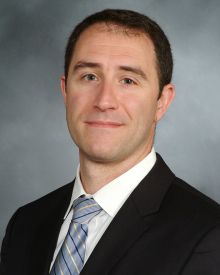Meyer members among Damon Runyon awardees
The Damon Runyon Cancer Research Foundation named seven new Damon Runyon Clinical Investigators, including two from Weill Cornell Medicine. The recipients of this prestigious three-year award are outstanding early career physician-scientists conducting patient-oriented cancer research at major research centers under the mentorship of the nation’s leading scientists and clinicians. Each will receive $450,000 to support the development of his/her cancer research program.
“The quality of research being proposed by our new Clinical Investigators is exceptionally strong, and we are thrilled to be able to continue our proud tradition of funding first-rate early career physician-scientists conducting patient-oriented cancer research at many of our nation’s finest academic research institutions,” said Yung S. Lie, PhD, Deputy Director and Chief Scientific Officer at Damon Runyon. “It is deeply satisfying to know that today we are helping to launch the careers of tomorrow’s brightest cancer researchers.”
The Clinical Investigator Award program is specifically intended to help address the shortage of physicians capable of translating scientific discovery into new breakthroughs for cancer patients. Through partnerships with industry sponsors and its Accelerating Cancer Cures initiative, the Damon Runyon Cancer Research Foundation has committed nearly $56 million to support the careers of 88 physician-scientists across the United States since 2000.
The Meyer Cancer Center investigators honored are:
Christopher E. Barbieri, M.D., Ph.D. [MetLife Foundation Clinical Investigator]
Prostate cancer is a clinically variable disease – some patients do well, while others do very poorly – and recent studies have shown clear molecular subtypes of prostate cancer that may explain this variability. Some subtypes of prostate cancer have underlying defects in repairing their DNA, making them potentially sensitive to therapies that exploit this deficiency. Dr. Barbieri is a surgeon scientist whose overall goal is to translate our understanding of the molecular basis of prostate cancer into near term benefits for patients. He will investigate the response to novel therapies for prostate cancer in patients undergoing surgical therapy for early stage disease, and define the genomic alterations that predict which cancers will be sensitive to these agents. Defining the response and the predictors of new agents in early, untreated prostate cancer will change the paradigm of how we treat men with the disease, allowing a precision medicine approach. Dr. Barbieri works under the mentorship of Mark A. Rubin, M.D.
Heather L. Yeo, M.D.
The cost of gastrointestinal cancer care in older adults is high, and hospital readmission after major GI cancer surgery can be particularly costly. The Center for Medicare Services (CMS) estimates that around 75% of these readmissions are preventable. For these patients, early warning signs for dehydration, infection, or other complications, if noted earlier, would allow physicians to intervene and prevent readmission. Dr. Yeo, a surgeon, has worked with programmers from Cornell Tech Campus to develop a Mobile Application (iPhone or Android compatible) for patients undergoing abdominal cancer surgery. The app tracks patients’ mobility and prompts patients to input quantitative and qualitative data regarding pain, fluid status and dietary factors in order to allow physicians to intervene earlier as needed. She is currently piloting the app for feasibility and usability, and improving the user interface so that physicians can use the app to monitor and improve patient care. The next step is a prospective randomized study to evaluate the utility of this mobile app in the prevention of readmission, thus enhancing physician-patient interactions, decreasing costs and, most importantly, improving patient care. Dr. Yeo works under the mentorship of Manish A. Shah, M.D., and Deborah Estrin, Ph.D., M.S.





